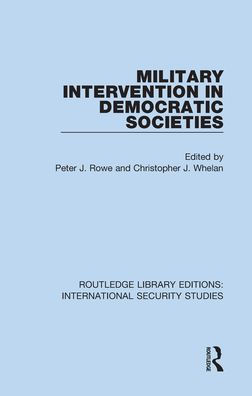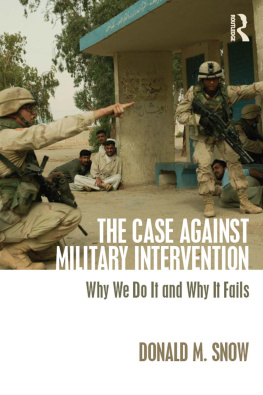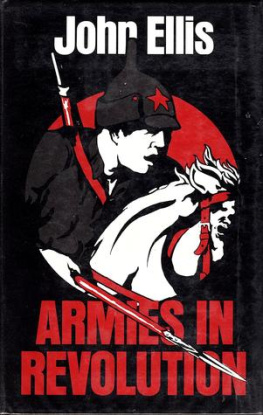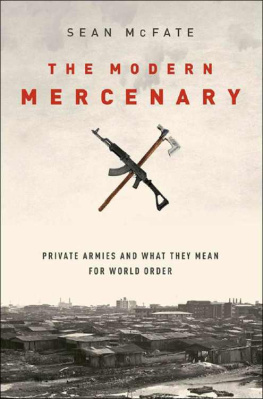Oxford University Press, Great Clarendon Street, Oxford ox2 6DP
Oxford New York
Athens Auckland Bangkok Bombay Calcutta Cape Town
Dar es Salaam Delhi Florence Hong Kong Istanbul Karachi
Kuala Lumpur Madras Madrid Melbourne Mexico City
Nairobi Paris Singapore Taipei Tokyo Toronto and associated companies in Berlin Ibadan
Oxford is a trade mark of Oxford University Press
The International Institute for Strategic Studies 1998
First published February1998by Oxford University Press for
The International Institute for Strategic Studies
23 Tavistock Streek, London WC2E 7NQ
This edition published 2013 by Routledge
711 Third Avenue, New York, NY 10017
2 Park Square, Milton Park, Abingdon, Oxon OX14 4RN
Routledge is an imprint of the Taylor & Francis Group, an informa business
Director John Chipman
Editor Gerald Segal
Assistant Editor Matthew Foley
Design and Production Mark Taylor
All rights reserved. No part of this publication may be reproduced, stored in a retrieval system or transmitted in any form or by any means, electronic, mechanical or photo-copying, recording or otherwise, without the prior permission of the International Institute for Strategic Studies. Within the UK, exceptions are allowed in respect of any fair dealing for the purpose of research or private study, or criticism or reviews, as permitted under the Copyright, Designs and Patents Act, 1988, or in the case of reprographic reproduction in accordance with the terms of the licences issued by the Copyright Licensing Agency. Enquiries concerning reproduction outside these terms and in other countries should be sent to the publisher.
This book is sold subject to the condition that it shall not, by way of trade or otherwise, be lent, re-sold, hired out or otherwise circulated without the publishers prior consent in any form of binding or cover other than that in which it is published and without a similar condition including this condition being imposed on the subsequent purchaser.
British Library Cataloguing in Publication Data
Data available
Library of Congress Cataloguing in Publication Data
ISBN 0-19-829440-9
ISSN 0567-932X
ADFL Alliance of Democratic Forces for the Liberation of Congo-Zaire
AFRC Armed Forces Revolutionary Council (Sierra Leone)
ANC African National Congress
BRA Bougainville Revolutionary Army (PNG)
BSF Bodo Security Force (India)
CAR Central African Republic
CCB Civil Cooperation Bureau (South Africa)
CIA Central Intelligence Agency (US)
CIS Commonwealth of Independent States
DASA Defense Atomic Support Agency (US)
DIA Defense Intelligence Agency (US)
DoD Department of Defense (US)
DROC Democratic Republic of Congo
DSL Defence Systems Limited
ECOMOG West African Cease-Fire Monitoring Group
ELN Ejrcito de Liberatin National (Colombia)
EO Executive Outcomes
FAA Foras Armadas de Angola
FARC Fuerzas Armadas Revolucionarias de Colombia
FIS Front Islamique du Salut (Algeria)
FRETILIN Revolutionary Front for an Independent East Timor
GIA Groupe Islamiquc Arme (Algeria)
GNU Government of National Unity (South Africa)
GSG Gurkha Security Group
IFOR Implementation Force (Bosnia-Herzegovina)
IFP Inkatha Freedom Party (South Africa)
IRA Irish Republican Army
ITAR International Transfer of Arms Regulations (US)
KDPI Kurdish Democratic Party of Iran
KMS Keenie Meenie Services
KNU Karen National Union (Myanmar)
LRA Lord's Resistance Army (Uganda)
LTTE Liberation Tigers of Tamil Eelam (Sri Lanka)
MPLA Movimento Popular para a Libertao de Angola
MPRI Military Professional Resources Incorporated
MRTA Movimiento Revolucionario Tpac Amaru (Peru)
NPA New People's Army (Philippines)
NPRC National Provisional Ruling Council (Sierra Leone)
NRA National Resistance Army (Uganda)
OAU Organisation of African Unity
PAE Pacific Architects and Engineers
PDD Presidential Decision Directive (US)
PKK Kurdish Workers' Party (Turkey)
PLO Palestine Liberation Organisation
PNG Papua New Guinea
PUK Patriotic Union of Kurdistan (Iraq)
RPF Rwandan Patriotic Front
RUF Revolutionary United Front (Sierra Leone)
SADF South African Defence Force
SAIC Strategic Applications International
SAIR Supreme Assembly for the Islamic Revolution in Iraq
SANDF South African National Defence Force
SAS Special Air Service (UK)
SFOR Stabilisation Force (Bosnia)
SIEROMCO Sierra Leone Ore and Metal Company
SL Sendero Luminoso (Peru)
SLMF Sierra Leone Military Forces
SPLA Sudanese People's Liberation Army
SRC Strategic Resources Corporation
TPLF Tigrean People's Liberation Front (Ethiopia)
ULFA United Liberation Front of Assam (India)
UNDP UN Development Programme
UN1TA Unio Nacional para a Independncia Total de Angola
URNG Unidad Revolucionaria Nacional Guatemalteca
USC United Somali Congress
UTO United Tajik Opposition
The use of paid foreign military force is as old as warfare itself. Its nature has, however, altered significantly in the late twentieth century. 'Military companies' have exploited the increasing reluctance of Western governments and multilateral organisations to intervene directly in civil conflicts. This reluctance has been most notable in Africa, where companies have hired out their military skills to states facing instability and war.
Military companies provide active military assistance, in some cases involving combat, which has a strategic impact on the political and security environments of the countries in which they operate. Current debate on the nature and role of these companies is, however, simplistic and obscures the strategic issues at stake. On the one hand, military companies have been hailed as an effective free-market response to a specific need no longer met by governments and international organisations; on the other, they are seen as employing modern-day mercenaries exploiting violence for private gain. Nevertheless, there is clearly a market for these companies' services, both from governments facing insurrection and no longer able to rely on powerful Cold War backers, and from multinational corporations operating in insecure areas.
At the close of the twentieth century, robust multilateral intervention in low-level civil conflicts is becoming increasingly unlikely following failures in Liberia, Rwanda and Somalia. Western states have become reluctant to deploy forces in areas in which they have little direct strategic interest, or where the risks of involvement are unacceptably high. This reluctance opens a market opportunity for military companies, which have in some cases acted as foreign-policy proxies for governments unable or unwilling to play a direct and open role.











